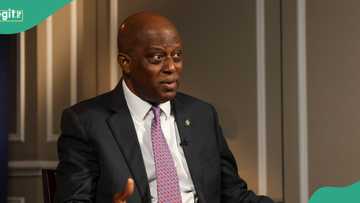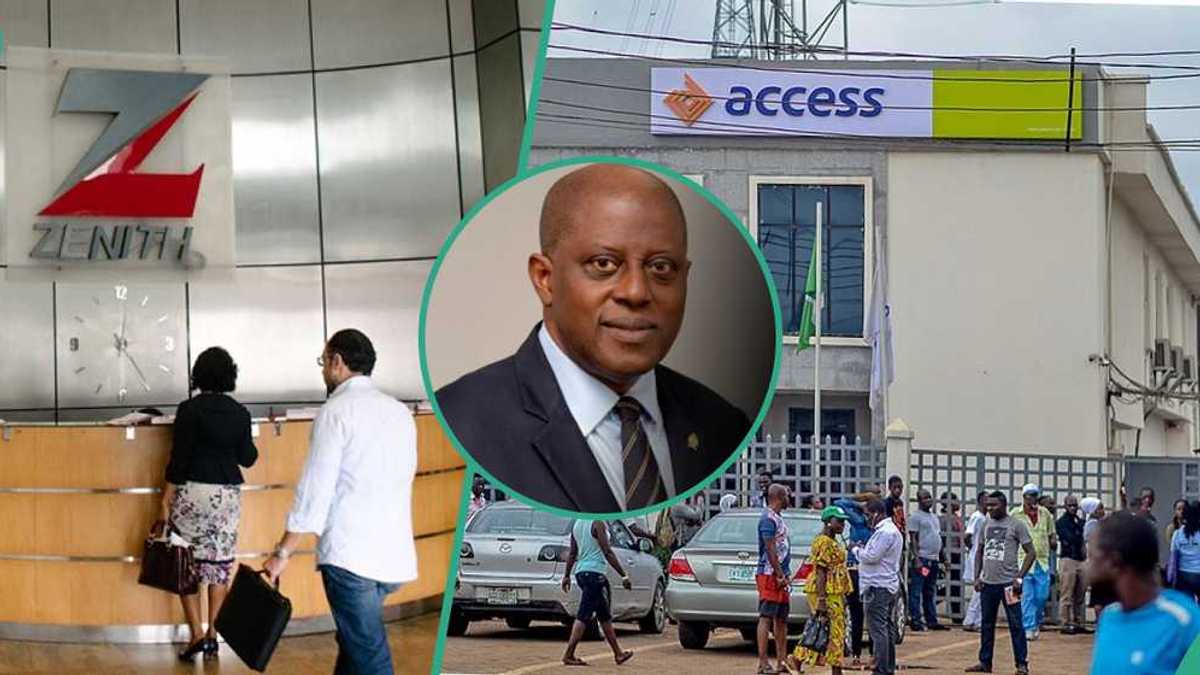Henzodaily.ng journalist Victor Enengedi has over a decade’s experience covering Energy, MSMEs, Technology and the Stock Market.
2024 was a transformative year for Nigeria’s banking industry, marked by significant regulatory shifts, technological advancements, operational adjustments and shifting customer preferences.
Stakeholders, including the Central Bank of Nigeria, the banks, and customers, have all played major roles in directing the sector’s evolution in the year under review.
Here’s a rundown of the top trends that shaped the sector in 2024.
10 Major Trends that Defined the Nigerian Banking Sector in 2024
Source: UGC
1. CBN increases capital base for banks
In a bid to strengthen the banking sector, the CBN mandated an increase in the minimum capital requirement. This move aims to bolster resilience against economic shocks and align Nigeria’s banks with global standards.
According to the CBN, commercial banks with international licenses must now have a minimum capital base of N500 billion, while those with national and regional licenses are set at N200 billion and N50 billion, respectively.

Read also
African country cancels charges on ATM cards, other debit cards to boost digital transactions
Additionally, the minimum capital for merchant banks with national licenses has been increased to N50 billion. For non-interest banks, the new capital thresholds are N20 billion for national licenses and N10 billion for regional licenses.
2. Cash scarcity in ATMs and over-the-counter
Persistent cash shortages became a major concern in 2024, leaving many Nigerians frustrated. Long queues and limited cash availability in ATMs and over-the-counter transactions highlighted infrastructure and liquidity challenges within the banking system.
3. Nigerian banks adjust withdrawal limits
Amid cash scarcity, Nigerian banks revised withdrawal limits, particularly for ATMs and counters. The adjustments were designed to manage cash flow but faced criticism for inconveniencing customers, especially in rural areas with limited electronic banking options.
4. CBN takes over management of dormant accounts
The CBN announced a takeover of dormant accounts, channelling unclaimed funds into a trust fund. This policy is intended to enhance financial inclusion while addressing the issue of idle funds in the banking system.

Read also
Finally, MTN, Airtel, others set to increase call, data tariffs in early 2025
5. CBN releases phone numbers to report banks
The CBN launched dedicated hotlines for customers to report cash shortages at ATMs.
The directive requires banks to facilitate effective cash distribution through both over-the-counter (OTC) transactions and ATMs, with the goal of addressing Nigeria’s ongoing currency circulation challenges.
This initiative aims to ensure banks comply with cash allocation regulations and improve customer satisfaction.
6. CBN increases interest rates multiple times
In response to inflationary pressures, the CBN’s Monetary Policy Committee (MPC) raised interest rates multiple times throughout the year.
At the beginning of 2024, the interest rate, otherwise known as the Monetary Policy Rate (MPR) stood at 18.75%, but by November 2024, the CBN had hiked it to 27.50%.
While this policy sought to stabilize the naira and curb inflation, it also increased borrowing costs for businesses and consumers.
7. Banks introduce Electronic Transfer Money Levy

Read also
World Bank removes several loan fees for Nigeria and other poor countries
Nigerian banks implemented an Electronic Money Transfer Levy (EMTL), sparking debates over additional costs for digital transactions.
The EMTL is a one-time charge of N50 applied to electronic receipts or transfers of funds amounting to N10,000 or more in any financial institution or deposit bank.
This levy, established through the 2020 Finance Act, amended the Stamp Duty Act to generate additional government revenue by leveraging the increase in electronic fund transfers within the country.
Despite concerns about financial exclusion, the levy is projected to generate significant revenue for the government.
8. CBN Introduces Electronic Foreign Exchange Matching System
The CBN introduced the Electronic Foreign Exchange Matching System (EFEMS) for conducting foreign exchange (FX) transactions in the Nigerian Foreign Exchange Market (NFEM).
The EFEMS will streamline foreign exchange transactions in the Nigerian foreign exchange market and ensure all foreign exchange transactions by authorised dealers are conducted exclusively through the CBN-approved platform

Read also
CBN opens whistleblower website to report financial misconduct, promises professionalism
The purpose is to ensure transparent, fair, and efficient FX trading, minimizing counterparty risk and ensuring compliance with CBN regulations.
9. CBN revokes Heritage Bank Plc’s license
Heritage Bank Plc’s license revocation shocked the sector.
The CBN cited insolvency and regulatory non-compliance, underscoring its commitment to ensuring a stable banking environment and safeguarding depositors’ funds.
The apex bank subsequently appointed the Nigeria Deposit Insurance Corporation (NDIC) as the bank’s liquidator.
Exercising its statutory powers as the liquidator of failed banks, the commission announced the commencement of the sale of landed properties belonging to the failed bank.
10. Unity and Providus banks to merge
In a landmark deal, the CBN approved the merger of Unity Bank and Providus Bank. The consolidation aims to create a stronger institution capable of delivering enhanced services and expanding financial inclusion.
Looking ahead to 2025

Read also
MTN, Airtel, Glo, other telcos Warn of service disruption over N250 billion debt by banks
These developments collectively signal a year of significant changes for Nigerian banking, with a strong emphasis on stability, innovation, and customer-centric policies.
As Nigeria’s banking sector evolves, the changes of 2024 set the stage for a more robust and inclusive financial system.
The lessons learned this year will likely shape future policies, ensuring the industry remains adaptable, competitive, and focused on meeting the needs of a dynamic economy.
CBN confirms validity of old, new naira notes
Meanwhile, Henzodaily.ng reported that the CBN has dismissed reports claiming that the old series of N200, N500, and N1,000 banknotes will no longer be accepted as legal tender by December 31, 2024.
The apex bank stated that such claims are false and calculated to disrupt the country’s payment system.
The bank directed all banks to continue to issue and accept all denominations of Nigerian banknotes, whether old or re-designed.
PAY ATTENTION: Сheck out news that is picked exactly for YOU ➡️ find the “Recommended for you” block on the home page and enjoy!
Source: Henzodaily.ng
